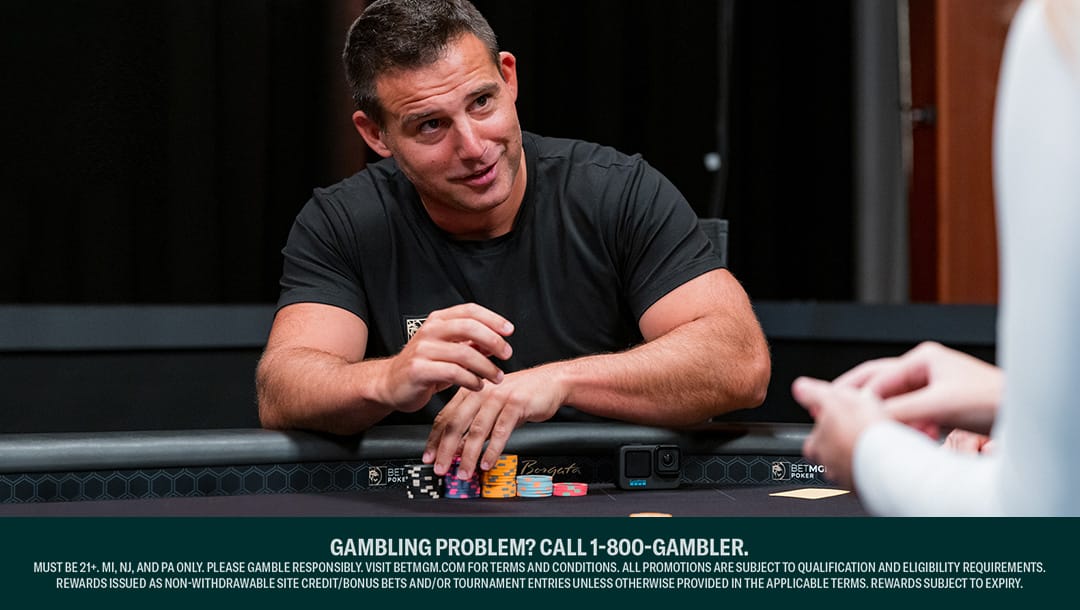
I’ve heard it said that no one can put a price on a quiet mind, and that is doubly true at the poker table. In poker, the margin between a good decision and a bad one can be razor-thin. Often, it’s not just about knowing the right play but having the mental clarity to make it. This is where mindfulness and a good poker game mindset becomes a game-changer.
By staying present and fully engaged, players can tap into their best decision-making abilities and avoid the costly distractions that derail even the most skilled professionals.
The Power of Presence in Poker
At its core, mindfulness is about staying rooted in the present moment. When you’re truly present, you’re not replaying the hand you misplayed an hour ago, thinking about where you’re going for dinner, or daydreaming about scooping the first-place payout. You’re right there, tuned into the ebb and flow of the current poker hand, observing every action, and considering your next move with clarity.
This state of focus is vital in poker because the game is as much about what you observe as what you do. Staying present allows you to pick up on subtle cues—a player’s tendencies, their bet sizing tells, or even their body language—that can finetune your future decisions. When you’re distracted, these details slip by unnoticed, leaving you to play in the dark.
Without all this added information gleaned from being present and observant, you are left to play a baseline strategy rooted in theory. And while theoretical poker is fundamentally sound and can be a winning strategy if executed well, the best players find exploitative poker plays as well that they are confident will work based on prior observation.
The Distraction Trap
One of the biggest enemies of mindfulness at the poker table is distraction. In today’s world, the most common culprit is the phone. Scrolling through social media, checking emails, or even casually texting during a game might seem harmless, but these habits chip away at your focus. Every moment you spend looking at your phone is a moment you’re not paying attention to the game. It’s also a signal to your opponents that you might not be fully engaged—a potential weakness they can exploit.
I’ve seen the phone addiction plague many players over the years. I remember one instance in a WPT where a player was running over the table and showing a number of ambitious bluffs over the course of a few hours. A professional at the table, buried in his phone, was not keen to this due to his lack of presence. Said professional and out-of-line bluffer get involved in a big pot where the bluffer puts the pro all in on the river. As the pro is deep in the tank, I’m thinking to myself, “He has to call here, has he been watching what’s been happening?”. However he had not, and paid the price and fittingly got Ten-High windmilled in his face after folding.
Strategies to Stay Engaged at the Poker Table
To cultivate mindfulness at the table, start by committing to staying off your phone. I know it can be difficult as life is still going on in the outside world while we are at the poker table, but setting small milestones can be a good place to start. Try staying off your phone for one orbit, then two orbits, then an hour, until you can build up to a meaningful chunk of time. Building this habit will win you more money in poker.
Next, practice observing the game actively. Pay attention to every bet, raise, and fold, even in hands you’re not involved in. Look for patterns in your opponents’ behavior. Over time, this habit will sharpen your focus and give you valuable insights.
Staying Calm Under Pressure
Mindfulness also plays a critical role in handling the emotional swings of poker. A bad beat or a missed opportunity can knock you off balance, but staying present helps you move past these moments quickly. Instead of spiraling into frustration or overthinking, you can reset and focus on the hand in front of you.
One of the mantras I tell myself during tournaments in these moments is, “It can’t be too easy.” Poker is a difficult game to master, with an unavoidable luck factor that can hurt you at any time. You are going to face adversity at the table, and being able to handle these setbacks, stay present, and continue to play your best is what separates the elite players from the rest.
A quiet mind is one of the most powerful assets a poker player can cultivate. When your mind is calm, it becomes a sharp tool—capable of analyzing complex situations, reading opponents, and making precise decisions. A quiet mind doesn’t mean suppressing thoughts; it means letting go of distractions and noise to stay fully engaged in the present. So next time you feel your focus slipping after you lose a big pot or start to wear down mentally, re-commit to mindfulness and dial in.
To play legally online, join BetMGM Poker.


